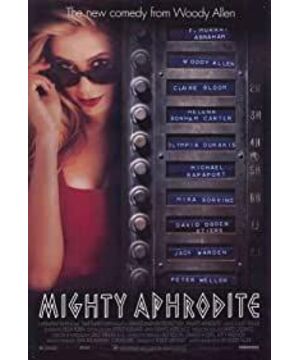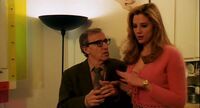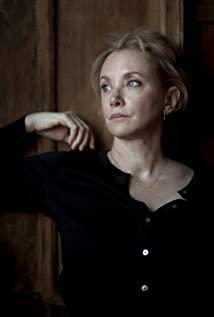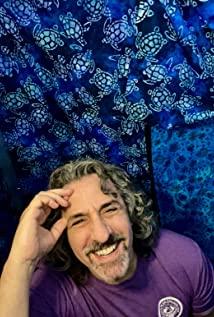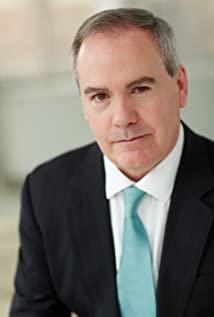It may be inappropriate to say that modern times, after all, this is a movie more than 20 years ago. In a word, Woody Allen borrowed the tragic archetype of Oedipus King and talked about a topic he had been talking about for decades: marriage and the emptiness and anxiety of middle-class intellectuals.
Sophocles’ "original" Oedipus King is considered the greatest ancient Greek tragedy, not only because it contains two important motifs in ancient Greek drama: the murder of the father and the abandonment of the son, but also because of the two major themes. Behind the motif, it also discussed an ultimate philosophical question: if there is fate, what is the meaning of human choice . Because of this, this story has become the prototype of countless works in later generations, including Hamlet and the play "Mighty Aphrodite". Comedy and tragedy in ancient Greece were two completely different theatrical genres. In Poetics, Aristotle believed that tragedy had fixed elements and norms, which stimulated human grief and pain to purify the bad parts of morality. What's very interesting is that this comedy movie by Woody Allen almost strictly follows the "tragedy theory" in "Poetics". After people laugh, they fall into the same contemplation.
At the beginning of the story, a group of ancient Greek actors wearing masks read white on a stage. This stage is actually a famous attraction, on the top of Taormina Mountain, and the snow-capped mountain in the distance is the Etna volcano.
This passage involves three famous ancient Greek myths, 1. The Trojan War provoked by the Nemesis and Eros. The first story leads to the main contradiction in the plot of this movie : marriage and love . 2. The second story of Oedipus King involves choice and destiny . This proposition carries the main contradiction of the movie plot. 3. Medea, in the third story, the center of the line is turned. Medea clearly has a better life because she is only obsessed with revenge. This is equivalent to finding a modern outlet for the almost inevitable fate of the first two stories: abandoning the constraints of morality, roles and rules. Then the movie was transferred to New York, where the typical intellectual middle-class Winlani family had a family dinner. The topic of discussion was: After many years of marriage, the wife who has no passion suddenly wants a child. Wen was instinctively opposed.
As mentioned earlier, one of the motifs of King Oedipus is the abandonment of the son. This is considered to be the natural fear of the patriarchy in the ancient Greek tradition for subsequent challengers, and Wen’s opposition to the son here is obviously out of completely different A consideration, a more modern consideration. The connection between these two points seems to be something like nothing, and it is the kind of Woody Allen smile that knows how to smile. There are many such jokes in later movies.
Woody Allen also derived his understanding of "Oedipus King" through chanting. He believed that the tragedy of Oedipus King originated from the ignorance and arrogance of the gods, and felt that he could manipulate and determine the fate of people. . The choice of King Oedipus could not change the fate of his oracle, but he eventually pierced his eyes and exiled himself to show his resistance to the gods. Woody Allen’s joking is that if fate exists, does the right of choice emphasized by intellectuals have the ultimate meaning only in self-expression?
Winlani and his wife subsequently adopted a beautiful child. As the child grew up, the child became smarter and cute, which aroused Wen's curiosity about his parents. So he tried his best to find his biological parents, and imagined that they should be beautiful and intelligent women. The plot here is undoubtedly another joke in parody of "Oedipus King". The tragedy of "Oedipus King" stems from the protagonist's obsession, obsessive searching for his father, even if he has a premonition that he might kill Up him. The contradiction in the subsequent plot of the play stems from Winlani's obsession with finding his adopted children's biological parents, even if they are known to be prostitutes and gangsters. The oracles and various prophecies in "Russia" are not so much an advice to Oedipus as a temptation, and he finally made a big mistake. And Winlani, his inner struggle is also vividly expressed through the dialogue with the "actor" in the second stage of the theater. Reason tells him that there will be no good results if he pursues it, but he wants to find it.
Although the oracle cannot be reversed, Zhu Guangqian seems to believe that caution can help "Russian" avoid fate, while Woody Allen believes that the destruction of Oedipus is because he is too serious, too persistent, and too caring.
Whatever the adopted mother, will not change the fact that the adopted son is cute and smart, but Wen Yu's theory must change all of this and turn him into a person who conforms to the public morals. Winlani finally met Linda, a young and tall girl, who was a young and tall girl. After he knew that she was a prostitute, he began to persuade the prostitute to follow suit. He pretended to be a client and talked to her first, and then he tried his best to help her prepare for the actor's interview. In the end, he even kindly introduced her a boxer boyfriend and concealed the fact of her career from the boxer. Here, Wen apparently played the role of the arrogant god in "Russia". The ending of this set is the same as in "Russia". Of course it will not be too good. Finally, the boxer who discovered the truth beat Linda.
Next, the parody of "Russia" is the blind beggar. In ancient Greek mythology, the blind beggar is a very special character. In many stories, they unintentionally tell the oracles or the fate of the protagonist, or become the key promoter of the plot. The same goes for the blind beggar Winlani met on the street. He didn't know how to learn the truth about Wen's wife's derailment and told Wen. This also inadvertently boosted Wen He's wife's "resurrection" (strange). In the play, another character "Cassandra" wearing an ancient Greek costume is also very interesting. Cassandra is a cursed female prophet in mythology. She can always predict accurately, but no one believes it. In this movie, her predictions include:
Don't go to the biological mother, otherwise there will be disaster.
(Fulfilled and become the main driving force behind the plot)
Don't buy a house by the sea, it is easy to get damp and the mortgage is high.
(Fulfilled)
A bald head would break Wen's leg.
(Almost fulfilled)
This kind of "prophecies and warnings" that I know her words are not believed, and still watch her hard has become one of the subtle guilty pleasures of watching this movie.
Wen comforted Linda who was beaten and had a one-night stand. Linda was pregnant with Wen's child, gave birth to the child alone for Wen's family, and then married a little brother who descended from the sky on high speed. This has become the last parody of "Russia", trying to avoid the warmth of having a child. In the end, it is inevitable that he has his own "blood and flesh", and this blood and flesh is taken away and raised by others just like in "Russia". .
Although woody ellen used Oedipus's part in a lot of parody in this movie, he finally told an irrelevant story through its deconstruction.
But wait, it really doesn't matter. From the beginning of the movie, the protagonist Wen has faced various choices. In the end, his choice failed to satisfy him. In other words, his choice could not determine his own "destiny." From the beginning, she and her wife were arguing about whether or not to have a child. The first second he was still arguing with reason, and the next second he had a child in his arms. Next, he and her wife started arguing about naming the child again, and finally used the name proposed by his wife. Later, the child asked why he moved. He insisted that he was a family member and his wife was only making the decision, but the most important thing was that he had the right to choose the remote control of the TV. I won’t enumerate everything after that. The irony is that the choice in the classical period cannot determine fate is more macro and fatalistic, while in modern society, the predicament faced by intellectuals is more direct. The choice in modern society More is a "placebo". But regardless of classical or modern times, this sense of powerlessness to face fate is common. Unlike tragedy, comedy eliminates this sense of powerlessness into a joke.
On the other hand, Oedipus's two major motifs, abandoning a child and killing a father, are unified under the same topic in the modern context: why do we want to have children. In the movie, the ancient Greek monologue attributed all the tragedy of Oedipus to the birth of a child. But the two in the play seem to regard the "child" as the solution to the problem rather than the problem itself. Countless hints at the beginning and in the middle of the play indicate that there is something wrong with their marriage and the passion is long gone. Under such circumstances, they choose to adopt a child. The problem with their marriage is obviously not the children, and the children will not be the antidote, because the typical "intellectual decent", Wen felt that his wife might have an affair, and would not explicitly object to it, and he bluntly said that he hates bugs on the beach. . And the two biggest characteristics of Wen, one is the constant need to find a theoretical basis for his behavior, the other is step by step. But is there a solution to this question? I am afraid that it is not. The reason why Wen became Wen is precisely because of these qualities, and so is his wife. It is not difficult to find in the play that countless careful arrangements have been defeated by impermanent fate. Wen Yue was obsessed with following the rules and following the theory, the more deviated the final result was. This may also be the source of the anxiety of the middle class in Woody Allen’s eyes. The middle class needs to protect existing assets and achievements, that is, they cannot become rule-makers, nor can they be rule-breakers, and can only become rule-obediencers, and Oedi The same is true for Puth. Of course he can kill the old man without seeing injustice, but then he is no longer Oedipus. Of course he can also investigate the case casually, but then he is not Oedipus anymore. Sir.
And what is the exit for this contradiction in the play? Don't have children, this is probably Medea's choice. Rather than abide by the rules and wait to die slowly, it is better to break the rules and break the net. It can be said to be quite simple, rude and Woody Allen's black humorous solution.
View more about Mighty Aphrodite reviews


